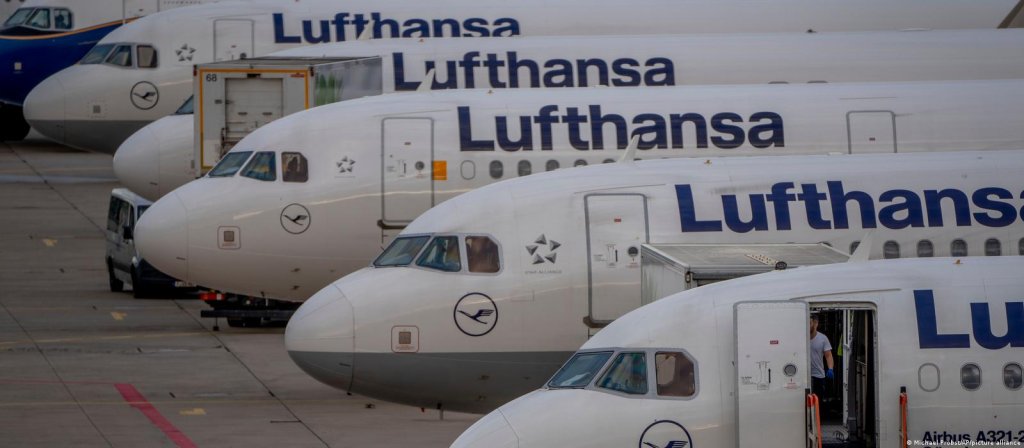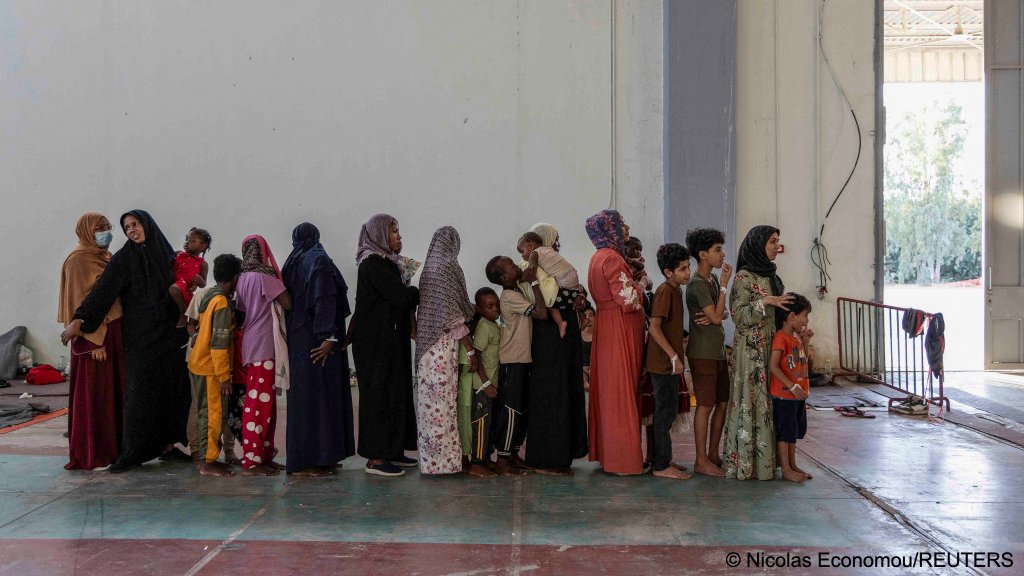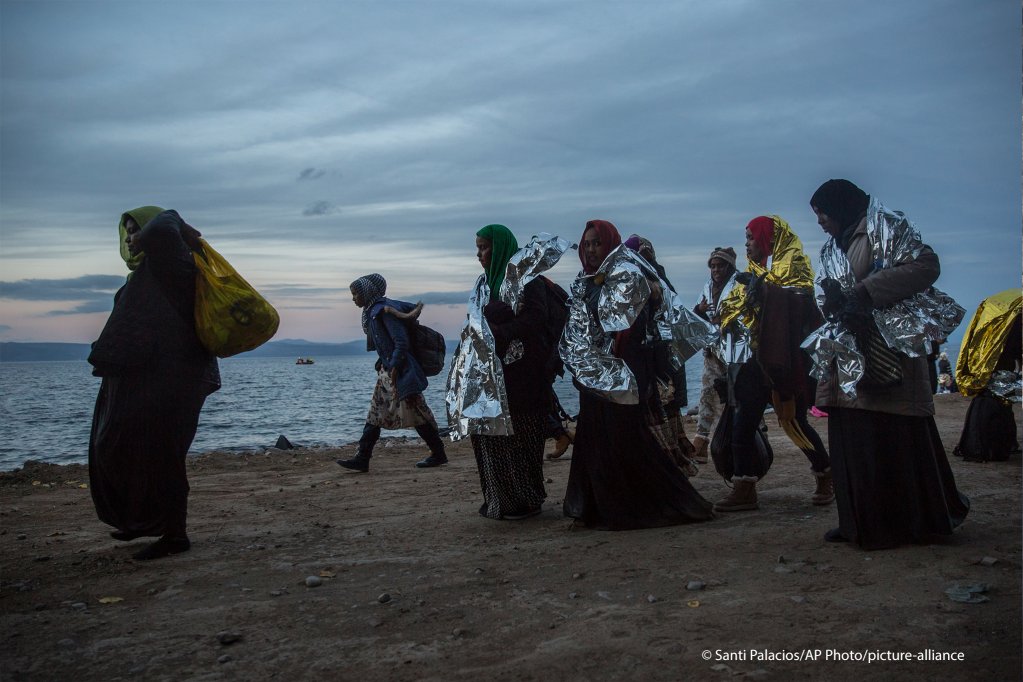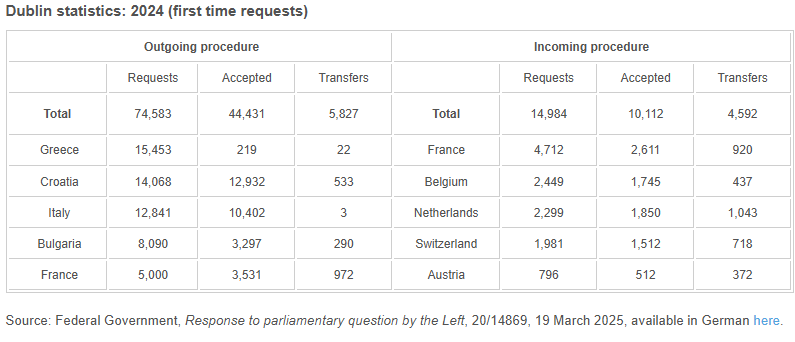Between January and May this year, around 8,000 people who had already been granted asylum in Greece reapplied for asylum in Germany, confirmed the German Interior Ministry.
In total, more than 26,000 such applications were filed during 2024, German Interior Ministry data showed. The data was released in response to a request for information issued by the Funke Media Group, reported the German press agency dpa on Thursday (July 24).
Those who have recognized refugee status are allowed to travel within the EU bloc, under the rules of Schengen, for up to 90 days, but they are not allowed to reapply for asylum recognition in a second EU member state.
"Persons granted protection in Greece must claim that protection there," declared a spokesperson from the ministry.
Read AlsoGreece to toughen law for rejected asylum seekers
Police union calls for tighter controls at airports
Many of the migrants applying for asylum for a second time reportedly arrived by plane. According to dpa, the German Police Union (GdP) has pointed to what it sees as gaps in airport checks between Schengen countries, and called for tighter controls.
Andreas Rosskopf, head of the GdP’s federal police division, called for more authority for the federal police to carry out checks and be able to return people they believe are engaged in secondary migration.

In April this year, Germany’s Federal Administrative Court ruled that deportations of single, healthy and employable migrants to Greece are permissible. Some have been sent back in the meantime from Germany to Greece, although the Greek authorities, like other countries, have also complained about Germany’s attempts to return migrants who were first registered elsewhere in the bloc.
The Federal Administrative Court's decision was heavily criticized by migrant rights groups, such as Pro Asyl, who claim that conditions in Greece remain inhumane. Meral Zeller, a spokesperson for Pro Asyl, told the press at the time of the decision that the situation for migrants and asylum seekers in Greece could be summed up with the words, "no bed, no bread, no soap."
Read AlsoGermany: Over 6,000 deportations in the first quarter
Tightening migration policies
In the last few years, Greece has also been tightening its own migration policies and its asylum policies. Recently, the country applied to the EU for permission to suspend asylum for those arriving from North Africa, after more than 10,000 undocumented migrants arrived via that route on the southern islands of Gavdos and Crete.
Many migrants and asylum seekers in Greece complain that it is difficult to find work and accommodation in the country, and find there is little financial support for them. Over the last ten years in particular, many have decided to continue their journeys from Greece, either along the Balkan route, or in the case of recognized refugees, via plane towards Germany, where they hope to find better economic chances and support.

Family and community ties also sometimes play a role in people’s decisions to undertake a secondary migration journey. Germany is home to large communities from Afghanistan and the Middle East, and many migrants may move there in search of support and contact with these networks.
Read AlsoGermany's Merz emphasizes reducing secondary migration from Greece
Returning to Lesbos
One person who did that, but then ended up back in Greece, is an Iranian woman named as Amena Namjoyan. She arrived on the Greek island of Lesbos ten years ago after fleeing Iran with her husband.
Namjoyan told the news agency Associated Press (AP) that she spent months in an overcrowded camp on Lesbos, learning Greek, but also struggling with illness and depression as her marriage collapsed.
After Lesbos, Namjoyan was one of over a million migrants who arrived in Germany between 2015 and 2016, in the hope of seeking sanctuary and starting a new life. But she struggled to settle down and eventually returned to Greece.

"Greece is close to my culture, and I feel good here," Namjoyan told AP. Today she is working in a restaurant on the Greek island, making Iranian food. "I am proud of myself," declares Namjoyan happily.
Read Also Migrant arrivals to Crete increase sharply from Libya
Germany fails to return many 'Dublin' cases
The German government too has been working to tighten its own migration policies still further since it took power in May this year. This includes attempting to return more migrants and asylum seekers who have no right to stay in Germany.
In 2024, Germany filed 74,583 outgoing Dublin requests to other member states, notes the European Asylum Database (AIDA).
However, out of those, only 5,827 transfers actually took place.
At the same time, Germany received 14,984 incoming requests, of which 10,112 cases were accepted and 4,592 individuals transferred to Germany.
If the number of those transferred is subtracted from the number of those Germany received, the country still carried out more transfers to other countries than it received, but the overall rate remains low on each side.

In comparison, notes AIDA, in 2023, Germany also sent out 74,622 outgoing requests, of which 55,728 were accepted. Only 5,053 of those transfers were actually carried out. That year, Germany received 15,568 incoming requests and accepted 9,954, of which 4,275 resulted in being transferred.
In terms of the transfers from Germany to Greece that were carried out in 2024, the Federal Government released information in March this year. According to the figures, 22 individuals were transferred from Germany to Greece, and just three to Italy. The highest number of successful transfers that year was from Germany to France, followed by Croatia and then Bulgaria.
With dpa and AP
Read AlsoGreece says it won't accept migrant returns from Germany
